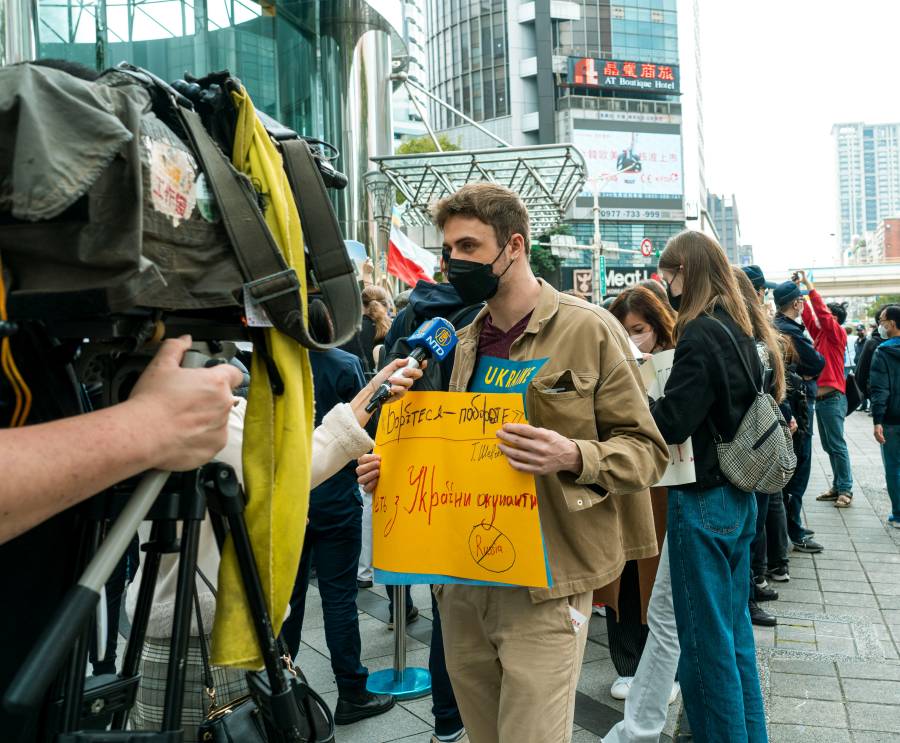Taiwan’s media landscape is once again at the center of a heated debate, with the controversial case of Want Want China Times raising serious questions about press freedom, political influence, and the role of business in shaping public discourse.
Want Want, a Taiwanese business conglomerate that made its fortune in China, has long been accused of using its media holdings to push pro-Beijing narratives. The group’s recent legal actions and continued political involvement have sparked concerns over the integrity of Taiwan’s press and the growing influence of Chinese capital in the island’s media.
Background of the Case
In recent months, a Financial Times report alleging that Want Want media outlets receive daily editorial instructions from China’s Taiwan Affairs Office has fueled outrage in Taiwan. Want Want has fiercely denied the allegations, filing a libel lawsuit against the Financial Times, the journalist behind the report, and Taiwan’s Central News Agency. Despite their denials, the report has ignited a public debate over the group’s close ties to Beijing, particularly in the context of the upcoming presidential election.
Want Want’s CEO, Tsai Eng-meng, has long been a vocal supporter of Taiwan’s unification with China. His political stance, along with his business interests, has led to increasing suspicion among Taiwanese citizens and civil society groups about the company’s role in Taiwan’s media ecosystem. The company’s media outlets, including the influential China Times and CtiTV, are seen by many as tools to sway public opinion in favor of Beijing’s policies.
The National Communications Commission’s Investigation
In response to the allegations, Taiwan’s National Communications Commission (NCC) launched an investigation into Want Want’s media outlets. The NCC is examining the media group’s content to determine if it poses a national security risk. This move comes as Taiwan’s legislature debates new laws aimed at curbing “fake news” and foreign influence on the media.
Taiwanese lawmakers, particularly those from the ruling Democratic Progressive Party (DPP), have raised concerns that the influx of Chinese capital into Taiwan’s media sector is eroding press freedom. Some have called for stricter regulations to prevent foreign interference in local media, drawing comparisons to mechanisms used by other democratic nations to regulate foreign-funded media outlets.
The Role of Media in Taiwan’s Political Landscape
Media has always played a pivotal role in Taiwan’s political landscape, with its diverse and free press reflecting the island’s democratic values. However, the increasing involvement of pro-China businesses like Want Want has raised alarms about the independence of Taiwanese media. Critics argue that the Want Want case is emblematic of a broader trend where business interests align with political objectives, threatening the autonomy of Taiwan’s media outlets.
At the heart of this issue is the relationship between business and government in China. In the early years of Taiwan’s economic engagement with China, Taiwanese businesses enjoyed favorable conditions in the Chinese market. However, as China’s domestic market matured and competition increased, companies like Want Want became increasingly reliant on political connections to secure their position. This has led to accusations that Want Want is using its media holdings in Taiwan to cultivate favor with the Chinese government and, by extension, advance Beijing’s agenda.
Resistance from Civil Society
The case has sparked widespread protests from civil society groups, who accuse Want Want of undermining Taiwan’s democratic institutions. In June, thousands of people took to the streets of Taipei to protest the growing influence of “red media” in Taiwan, demanding stronger safeguards to protect press freedom. The DPP has voiced support for such protests and called for the passage of laws that would regulate foreign influence in the media.
The issue has also become a central topic in Taiwan’s upcoming presidential election. The Kuomintang (KMT), which has historically been more favorable toward closer ties with China, has been accused of being sympathetic to pro-Beijing media outlets like Want Want. The DPP, on the other hand, has championed the protection of Taiwan’s media independence and national security.
Looking Ahead: Media Reform in Taiwan
The Want Want case has opened a broader conversation about the future of Taiwan’s media and the challenges it faces in the face of growing foreign influence. As the government grapples with the issue, the question remains: how can Taiwan preserve its press freedom while safeguarding itself from foreign interference?
Media reform will likely play a key role in the coming years, with calls for greater transparency, accountability, and independence in Taiwan’s media sector. The Want Want case has shown that the balance between business and politics in Taiwan’s media industry is increasingly difficult to navigate. As Taiwan faces rising pressure from China, its ability to maintain a free and independent press will be a crucial part of its ongoing fight for democracy and sovereignty.

